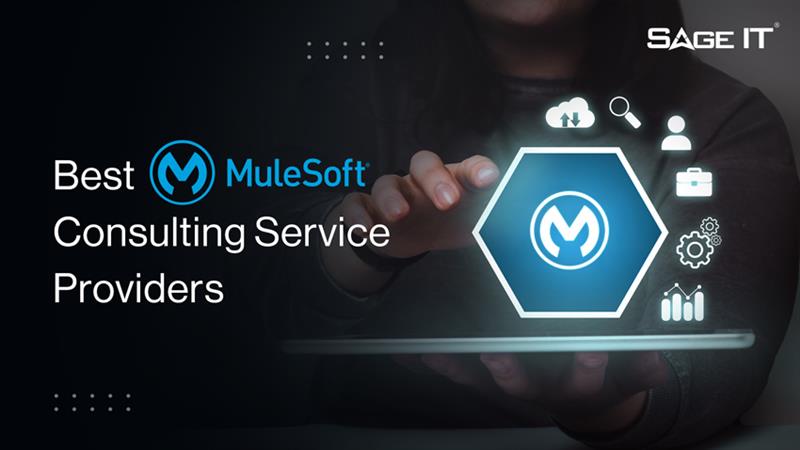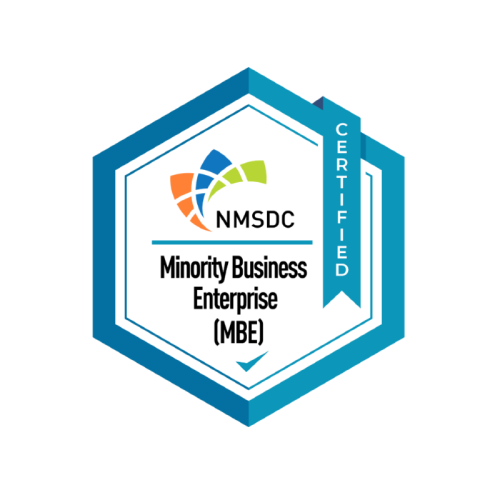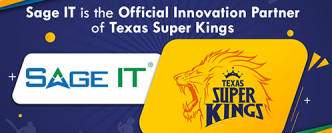In today’s digital world, data is the new oil. And just like oil, it needs to be refined and managed efficiently to derive maximum value from it. This is where Master Data Management (MDM) comes into play. MDM is a comprehensive approach that involves managing all critical data within an organization to ensure its accuracy, consistency, and completeness across different systems and applications. In this blog post, we will cover everything you need to know about MDM – what it is, its significance in business, role and impact, benefits of implementation, key factors in successful implementation, challenges in MDM, essential capabilities of MDM, case studies of successful deployment, and the future of MDM in business intelligence. So whether you’re a business owner or an IT professional looking to optimize your data management strategy, this post will provide you with all the information you need.
Understanding Master Data Management (MDM)
MDM delivers a single, reliable data source and manages critical assets across systems, enhancing operational efficiency. It establishes robust data governance and supports business intelligence. Implementing a master data management solution is crucial for businesses to streamline customer service, as it’s the first step toward ensuring accurate and consistent phone numbers for business users.
The Significance of Master Data in Business
In business operations, master data serves as reference data, ensuring accuracy in customer information and product data. It integrates customer data, impacting customer experience and satisfaction. A master data management solution streamlines business processes for business users. It is the first step towards reliable data governance and supports effective customer service, such as managing phone numbers.
Core Principles of MDM Architecture
Establishing policies and processes is vital for data governance, ensuring accuracy, consistency, and completeness. Data quality maintenance involves ensuring cleanliness, relevance, and consistency of data across all platforms. Data integration consolidates data from various systems for centralized access. Implementing security measures safeguards sensitive data, and lifecycle management ensures data’s usefulness over time.
The Role and Impact of Master Data Management
Master data management (MDM) involves maintaining a consistent, accurate view of critical business data. It enhances decision-making, reduces errors, and boosts operational efficiency. Successful MDM mandates a robust data governance strategy and the use of technology tools like data integration and quality software. Collaboration across departments and ongoing data stewardship are essential for successful MDM implementation. MDM’s significance has grown with increasing data usage and stricter data regulations.
Why Master Data Management is Crucial in the Digital Economy
In the digital economy, master data management (MDM) plays a crucial role in ensuring data accuracy and consistency across organizations. It helps reduce errors, improve operational efficiency, and enhance decision-making. MDM also supports regulatory compliance, customer experience improvement, and strategic initiatives such as M&A. Successful MDM involves technology, data governance, and organizational change management, making it indispensable in today’s business landscape.
How MDM Drives Digital Transformation in Businesses
Driving digital transformation in businesses, a master data management solution empowers organizations to enhance customer service and support business users. By providing a single, accurate view of data, MDM ensures that phone numbers, customer information, and other critical data are consistent across the enterprise. This unified approach serves as the first step towards leveraging data to drive strategic initiatives and operational efficiency.
The Benefits of Implementing Master Data Management
Enhancing operational efficiency and revenue growth is a primary benefit of implementing a master data management solution. Effective MDM also leads to improved customer service, empowering business users with reliable data for decision-making. Moreover, it aids in managing phone numbers and other critical customer information. Implementing MDM is the first step toward harnessing the full potential of organizational data.
Revenue Growth and Operational Efficiency Through MDM
By implementing a robust master data management solution, businesses can enhance operational efficiency. This enables quicker access to accurate customer service information like phone numbers, leading to improved response times and customer satisfaction. Business users can leverage reliable data as the first step towards achieving revenue growth and operational excellence, driving better decision-making and overall performance.
Enhancing Customer Satisfaction with Effective MDM
Incorporating a master data management solution can significantly enhance customer service. By providing business users with accurate and up-to-date information, organizations can ensure seamless customer interactions. Effective MDM enables quick access to customer phone numbers and other essential details, empowering businesses to resolve queries efficiently. Implementing MDM is the first step towards ensuring high levels of customer satisfaction and retention.
Key Factors in Successful MDM Implementation
Building a robust master data management solution is crucial for successful implementation. Involving business users and customer service in the process ensures data accuracy. The first step is to identify key data entities such as phone numbers and addresses. Leveraging MDM tools facilitates efficient management, contributing to enhanced operational efficiency and customer satisfaction.
Building a Robust Master Data Management Strategy
Implementing a master data management solution involves defining data governance policies to ensure data quality, relevance, and security for business users. This enhances operational efficiency and drives business value while providing a single source of truth for critical data. A robust strategy encompasses best practices for managing master data assets, making it the first step towards reliable and timely information.
Key Considerations in Managing Master Data
In managing master data, addressing data governance, data quality, and data integration is crucial. Identifying and managing master data assets, like customer data and product information, is vital for effective management. It supports business operations, customer experience, and business intelligence. Master data management involves data model design, data sources, and customer information management, prioritizing assets to support business units, end users, and analytical insights.
Challenges in Master Data Management
Master data management encounters challenges in integrating and reconciling data from diverse systems. The management of unstructured, transactional, and big data presents obstacles. Ensuring data quality, accuracy, and consistency across enterprise systems remains critical. Overcoming data volatility, governance, and data sets integration are crucial hurdles. Master data management programs must address data governance, data quality, and data assets synchronization.
Dealing with Data Complexity in MDM
Dealing with the complexity of data in master data management involves addressing diverse sets, sources, and records. Managing location data, customer records, and product data adds layers of complexity. Understanding different systems, data sets, and customer data integration is crucial. Effective management involves data model design, master data records, and integration of data sources.
Overcoming Volatility and Inconsistencies in Master Data
Addressing the volatility and inconsistencies in master data management involves managing data sets, customer information, and product information. It is crucial to ensure data quality, golden record management, and a reliable source of master data records. Overcoming inconsistencies in data assets, reference data, and data sources integration is a key focus area. Managing unstructured data, transactional data, and customer data integration are also essential steps. Timely information, single place master data management, and a robust master data management system play significant roles in tackling data inconsistencies.
Essential Master Data Management Capabilities
Master data management capabilities encompass data governance, master data records, and data quality management. It includes enterprise data management, master data governance, and achieving accurate master data through customer information management. Essential capabilities involve mdm process optimization, business units, and steering committee for effective master data management. These critical capabilities drive business value optimization in MDM.
The Importance of Real-Time, Secure Data
Real-time, secure data is crucial for business operations, customer satisfaction, and operational efficiency. It facilitates timely information, supply chain management, and enterprise resource planning. Additionally, it supports machine learning, new products, and business intelligence initiatives. Ensuring data security, location data, and customer relationship management is paramount for business operations, enhancing overall efficiency through accurate master data.
The Role of Data and Workflow Visualization in MDM
Understanding the integration of data flows, sources, and sets is aided by data and workflow visualization in master data management. It supports visualization of customer data, product data, and master data assets for business intelligence. Visualization also facilitates an effective mdm strategy by understanding different systems, single source of truth, and master data management system. Visualizing data sets, master data records, and customer data integration enhances data governance and quality management.
Case Studies: Success Stories of MDM Deployment
Successful implementation of a master data management solution has significantly enhanced supply chain management, customer service, and operational efficiency. Case studies have vividly demonstrated how MDM programs impact business units, business users, and overall business value. Companies have effectively leveraged MDM to achieve a reliable source of data, accurate master data, and a single source of truth. These success stories underscore the critical role of MDM strategy and solution in driving business operations.
How Companies Optimized their Supply Chain with MDM
Optimizing supply chain management, companies leveraged master data management programs and best practices. This enhanced supply chain efficiency, product information management, and accurate master data. Managing part numbers, location data, and big data was crucial. The mdm strategy, process, and system played critical roles in supply chain optimization, achieving operational mdm, business process efficiency, and analytical mdm for supply chain management.
Gaining Insights Faster with MDM: A Success Story
In a practical case, a leading company utilized a robust master data management solution to gain insights faster and enhance decision-making. By ensuring data accuracy and consistency, MDM empowered business users to make informed choices, thereby improving customer service. Despite challenges, overcoming them was the first step toward successful MDM implementation, resulting in streamlined processes and enhanced operational efficiency.
The Future of Master Data Management in Business Intelligence
Master Data Management (MDM) is increasingly vital in business intelligence as companies analyze larger data volumes. MDM ensures consistent, accurate data across systems, providing a single source of truth for decision-making. Cloud migration amplifies the need for data integrity and security. Artificial Intelligence and Machine Learning automate data management and enhance data quality. The future of MDM will integrate advanced analytics, AI, ML, and prioritize data governance and privacy.
Trends and Predictions for MDM
Evolving technologies will shape future trends and best practices, driving MDM adoption. Analytical MDM will be pivotal in uncovering insights, shaping data management trends. Machine learning integration in MDM will revolutionize data governance, impacting future trends. MDM’s role in big data management will steer trends, driving new product information management practices. Furthermore, MDM’s importance in enterprise resource planning will influence future trends and business operations.
How Might Evolving Technologies Influence the Future of MDM?
Evolving technologies will shape the future of MDM, revolutionizing data management. Advancements in MDM software will transform data governance, while blockchain integration will ensure data integrity. Additionally, the integration of IoT and AI in MDM will reshape data sources and impact future data governance strategies.
Conclusion
To stay competitive in today’s digital landscape, businesses must prioritize the effective management of their master data. Master Data Management (MDM) plays a crucial role in ensuring the accuracy, completeness, and consistency of data across various systems and processes. By implementing MDM, organizations can drive revenue growth, improve operational efficiency, and enhance customer satisfaction. However, successful MDM implementation requires careful planning and consideration of key factors. Building a robust MDM strategy and managing master data effectively are essential for achieving desired outcomes. Moreover, businesses must address challenges such as data complexity and volatility to ensure the reliability of master data. Looking ahead, the future of MDM lies in leveraging evolving technologies and trends. Real-time, secure data and data visualization will continue to play significant roles in MDM. Additionally, as businesses embrace digital transformation, MDM will become even more crucial in enabling data-driven decision-making and business intelligence. In conclusion, businesses that prioritize MDM and invest in its implementation and capabilities can unlock numerous benefits and position themselves for success in the digital economy.
If you have any further questions or need assistance, feel free to reach out to us at marketing@sageitinc.com










